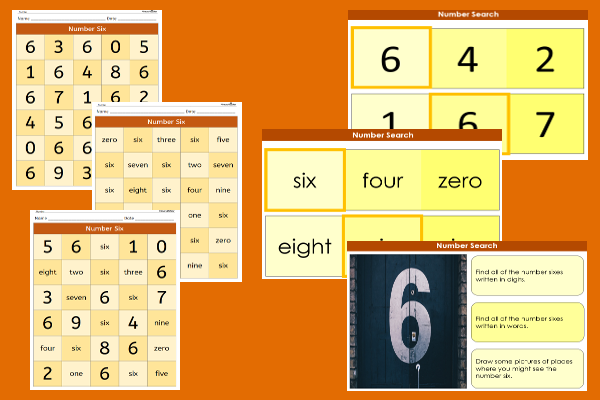Home > Foundation Stage > Numeracy > Number > Place Value > Number Search
Number Search Six

This numeracy teaching pack for the Foundation Stage gets the children to identify and practise recording different representations of the number six using examples of the number written in both words and digits.
The class can describe where and how they might use the number six in a range of different situations to practise and develop their number recognition skills.
Download this teaching pack including classroom activities and an interactive presentation to teach the children to identify and practise recording different representations of the number six using examples of the number written in both words and digits
Activities in this teaching pack include a set of worksheets to identify and record the matching digits and words for the number six using its numerical and written representation in numbers and letters.
The interactive presentation gets the children to explore how to identify and practise recording representations of the number six using both words and digits.
This lesson can support development in learning how to identify and recognise digits in numbers. There are teaching activities for shared learning, differentiated worksheets to support independent learning and an interactive presentation to introduce concepts and key skills.
-

School Friends
Investigate, describe and model some of the special ways of providing practical, spiritual and emotional support to other pupils in the school
-

School Pictograms
Explore how to count and record the numbers of different pieces of school equipment that can be found in trays stored around the classroom
-

Listening Skills
Develop and refine listening skills when practising how to follow commands and instructions when playing games and role-playing actions
-

Halving Things
Explain and model how to find and record the halves of some of the different objects that can be used at home and in school
